|
I hear this snarkument all the time. “Who cares? It's made for children.” What's funny is that I never hear this said to anyone whose enthusiastic about the latest product shoved into movie theaters or book shelves. I've never seen someone say, “So, you liked Moana? You know that's for kids, right?” It's always a manner of shutting down voices of dissent, because we all know, it's against internet conduct to not wholeheartedly approve of a Disney movie. (In the UK, you can actually be imprisoned for it.) Yet, every pseudo-intellectual Youtube film critic was out opening week to bitch and moan about The Emoji Movie. Hmm...was that one not made for children? Surely, there are no double-standards afoot. So, here's the most obvious response to this shit, and the most logical one. I care about children's entertainment because I care about the culture children are raised in. This should go without saying but due to people being incapable of holding actual discussion, the obvious can no longer be overstated enough these days. Nobody's going to disagree with you raising your kid on a healthy diet rather than McDonald's and Pepsi every day. Why are the books they read any different? I'm open to the occasional candy bar. I remember being a kid and liking stupid shit. I have The Adventures of Sonic the Hedgehog on DVD as a memento of those times. I'll come back to this later. The important thing about this point is that I don't want children being raised with crummy morals or on content less than they deserve. I recognize that you can't force a child to enjoy what they should but that doesn't mean I can't get pissed at untalented authors and filmmakers for sucking at their job. Look at Cartoon Network back in the days of Dexter's Laboratory and Johnny Bravo. Are you really going to tell me that they're the equivalent of Uncle Grandpa? Your children are being raised by pop culture. Wouldn't you want a thorough background check on their babysitter? Why should their TV shows be any different? Next up is the lesser point of this article, but it's one I bring up all the time. Any time that anybody says I'm overthinking something, I look up the budget of whatever that product was. (This typically applies to movies.) Upon a quick Google, Fantastic Beasts and Where to Find Them was made on a gross budget of 200 million dollars. Now, if I was to moan about how lazy and poorly-constructed it was, I would probably be met with a response of it being for children or that I'm overthinking it. If you had that much money and were about to invest it in something, would you even consider it possible to overthink that much money? From my impoverished opinion, fathoming the use of that much money feels like imagining what it's like to terraform a planet without a blueprint. Obviously, this can apply to book budgets or anything else. We just usually don't discuss budgets about those things as often. Anyhow, this point is only tangentially-related. Back on that real, I remember reading a lot of things as a kid I would scoff at now. I clocked way too many Stephen King books (probably twenty or thirty in whole) and way too many Neil Gaiman books (maybe six). I enjoyed a lot of those books (King's) but I wouldn't waste my time on a page of it today. Mostly because I'm just not personally interested in that kind of literature anymore but also because my taste has evolved while I've been growing as a person. The thing is, I see a lot of readers in stunted-adolescent stages of readership. Not everybody has to reach for Gravity's Rainbow. That's a niche market, even for readers. I get that. On the other hand, if the steepest you've climbed up the literary canon is George R. R. Martin, that worries me. Some people aren't into fiction, or even into literature, that's cool, too, but if you're a book nerd and end the line there, you gotta start lifting heavier, (wo)man. Recreationally, there's nothing wrong with enjoying whatever you want. (Again with overstating the obvious. I love Captain Underpants more than I enjoy The King in Yellow. Some years, I'll watch a dozen Spielberg movies before I get around to one Bergman. The thing is, look at this crowd of imbeciles who define their world-view by Harry Potter. That's gotta be classified as a mental illness somewhere. I enjoy those movies as passive entertainment but I also despise them for their shallow world view of good vs evil and how if you're not a Hermoine, then you're a Voldemort (with the rare Snape that has an iota of nuance). I don't want my (nonexistent, unlikely to ever exist at present) children to see the world that way. Life is complex. People are multifaceted. Good people do bad and “bad” people are capable of good. The world is larger than Hogwarts, even if those stories are pleasant. Sometimes I wonder (and this is pure speculation without making any true assertion) if past generations were more intelligent having been raised on Lord of the Rings rather than The Hunger Games. Just a thought that keeps me busy sometimes. Ultimately, what this shallow, stupid argument boils down to, though, even above children, is one thing. It's somebody who is ashamed of their interests finding their taste put into question. They don't have the brain-power to defend it or accept that maybe others see the latest CGI product differently than they do, so they dismiss it with an “Oh, it's for children, anyways.” Well, no. You own hardback and paperback copies of the books, have the Funko vinyls of half the characters, and watch the adaptation every week as soon as you get home from work. You're too weak to be confident in your interests and that's cowardly. If you ever throw an examination of pop culture out because it's for kids, then maybe you should grow the fuck up.
0 Comments
We need to treat the literary marketplace like a gym. Our own insecurities, time restraints, and creative responsibility are the weights we're lifting. The promotional hustle is your cardio. They aren't setbacks; they're just an occasion to rise to. Each time we sit down to churn out another chapter is a rep. Hopefully we're increasing the weight we're lifting with every project. No one wants to plateau. If a particular set is painful, it's just building muscle. Hype yourself up. Make a playlist for yourself or find an album that gets your in the right meditative state to start grinding. You've gotta make sure to eat lots and to eat healthy. Stephen King called himself the Big Mac of literature. It can be fun to eat like a teenager every now and again but you don't need that shit. Go get something high in protein. Catch up with the Greeks. You need role models, posters on the wall with literary bodies you'd like to someday amount to the equivalent of. It's motivation. Nobody has ever lifted two hundred pounds before they could lift eighty. Your peers in the gym aren't the enemy. Don't forget that they're training with you, not against you. The only one you're competing with is the (wo)man in the mirror. Everyone is on their own hero's journey. You can choose to be someone who holds some branches so they can pass through easier or you can obstruct their path. The thing is, your actions only reflect your own character. I think of criticism as spotting another artist. I'm not pressing the weights down against them. I'm trying to help them perfect their form. You should always use criticism kind-heartedly. If you find yourself not having the artist's best intentions in mind, just stay out of their way. I don't like Tim Burton's movies, so I don't fuck with 'em. I don't like what he does, so there's no need for me to criticize it. Don't forget that these people are your brothers and sisters. You might butt heads, but at the end of the day, you're on the same team. Another thing is, you can't compare yourself to other people. You might not be lifting as much as the girl next to you but she might be five years further down her path than yours. The guy next to you might do twice as much cardio but can't lift the same that you can. It doesn't matter. You're not racing each other and ultimately, you want to spread your tips of the trade so that you can all make for better art. I'm assuming that most writers also enjoy reading a good book. If you see someone in need, take a second to help them out. Spot them, hook them up with a trainer (You know, an editor or some shit.), the cost of one book could cover the admission fee for another day at the gym for some authors. It's a community built around self-improvement. Help each other help yourselves.
I'm about to drop a bombshell. Writing isn't exactly a lucrative business. Maybe if you're Tom Clancy, but there's only enough room for so many New York Times Best Selling Authors on the bookshelves at Wal-Mart. I only know a handful of writers who live off of what they do and a majority of them collaborate with small publishers to help them promote. A lot of us do it as a side-hustle on top of parenting or making fake Facebook accounts to see what Stacey's been doing since she blocked me. So, here's the good news. This isn't always a bad thing. Plenty of history's best writers didn't live off of their writing. Below is the first Google result. You're welcome. One of the most interesting things I've ever heard was from my high school German teacher when asked about teaching wages. She said that the plus side is that you won't have people crowding the market to get easy money. That's how I feel about writing. Sure, it'd be cool if you can make money off you're writing (and many can), but there is something pure about keeping finances out of it, doing it for the love of the craft. https://www.inc.com/glenn-leibowitz/want-to-get-famous-pursuing-your-passion-these-7-people-prove-you-dont-need-to-quit-your-day-job.html So, here's the bad news. This also means that many authors will never reach their full potential. Think about our minds being like a phone batter that depletes with usage, and the more apps running, the faster it drains. If you're writing at the end of your day after an eight-plus hour shift, household duties, and going through pictures of Stacey's ex-boyfriends to find which stock photo male model looks the most like her type, it can be hard to focus. Stephen King said some bologna about not being a true writer unless your read four hours a day and write four hours a day. I'm lucky if I make room to read and write that much a week out of the year. I fear that a lot of magnum opuses collect dust in the heads of their originators and the world might be a lamer place for that. Anyhow, here's how you can help. Just be there. If someone you're interested in puts a book out, pay for it. Read it, talk to them about it, write a review. It may not seem like much (and I'd beg to disagree, because reading one book can be a heck of a lot sometimes), but it makes a huge difference. Every single purchase counts. Every review helps. If you share a blog post or give just a star rating on Goodreads, it goes a long way. We're starving out in the desert here and we'd kill for just one drop of water. Now, I will say that if an author ever charges $20+ for a chapbook, then they're likely a bullshit artist. I do not see how the means of production justify the cost and have seen many examples of this. (If you have any information on what goes into a twenty page book that isn't printed on gold, please let me know. I've been confounded on that for years.) The thing is, most people I've met aren't that way. They're out printing their own chapbooks, organizing their own events, helping promote and support other authors. I think for the most part, you can tell if someone is being genuine. Most people can be read like a book. I should end this, there.
Anyhow, that's that. This shit is basic, but essential. |
CategoriesArchives
August 2023
|


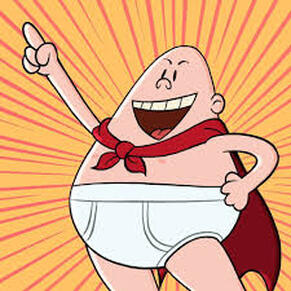
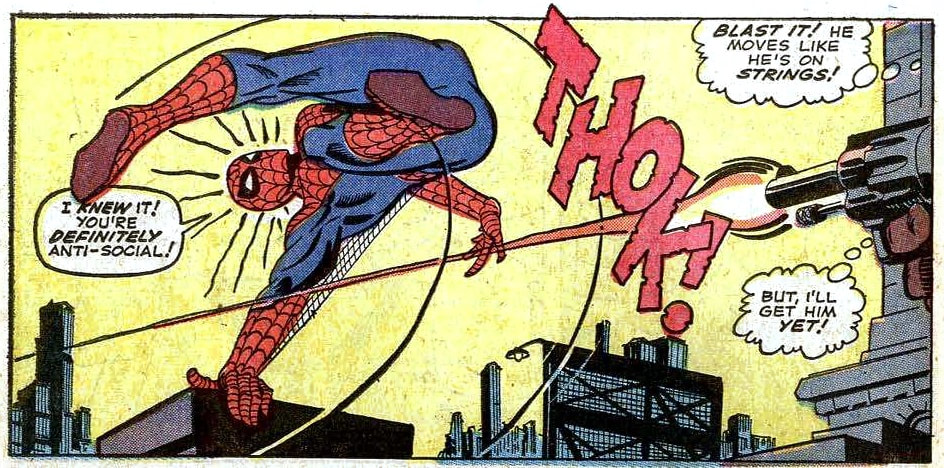
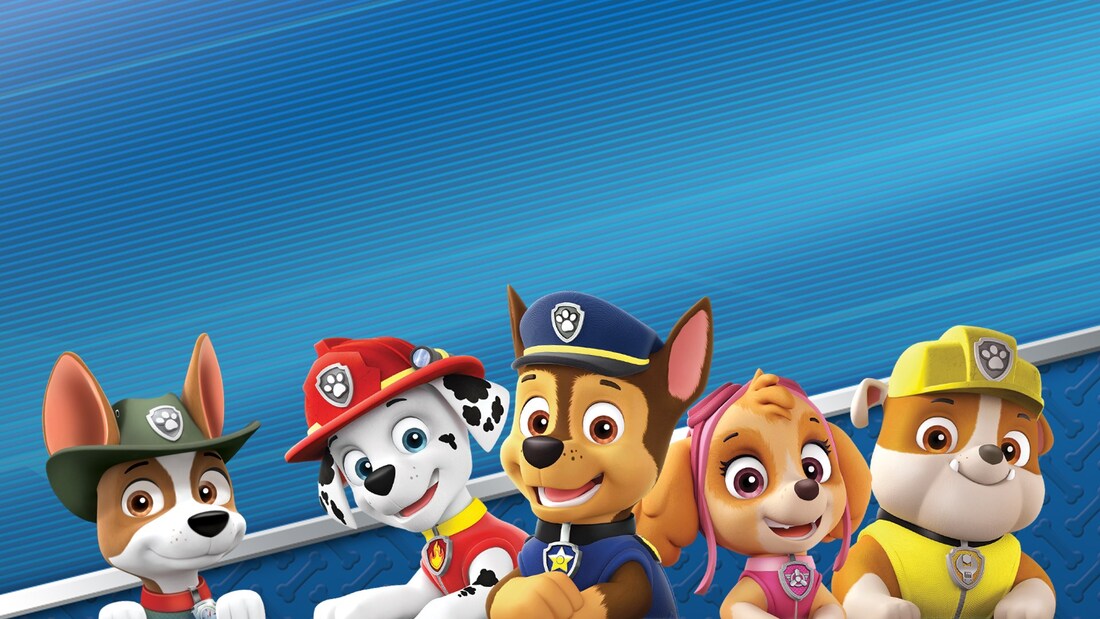
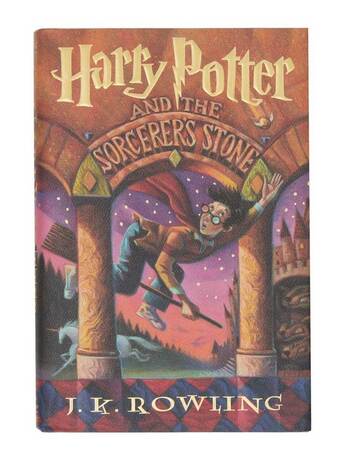




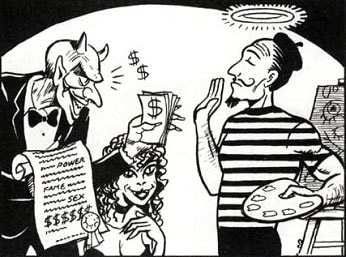
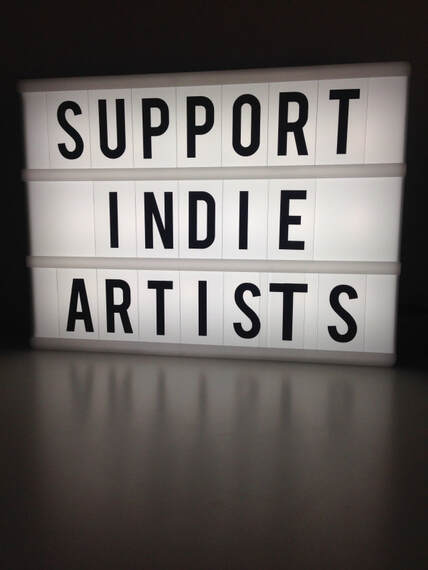
 RSS Feed
RSS Feed